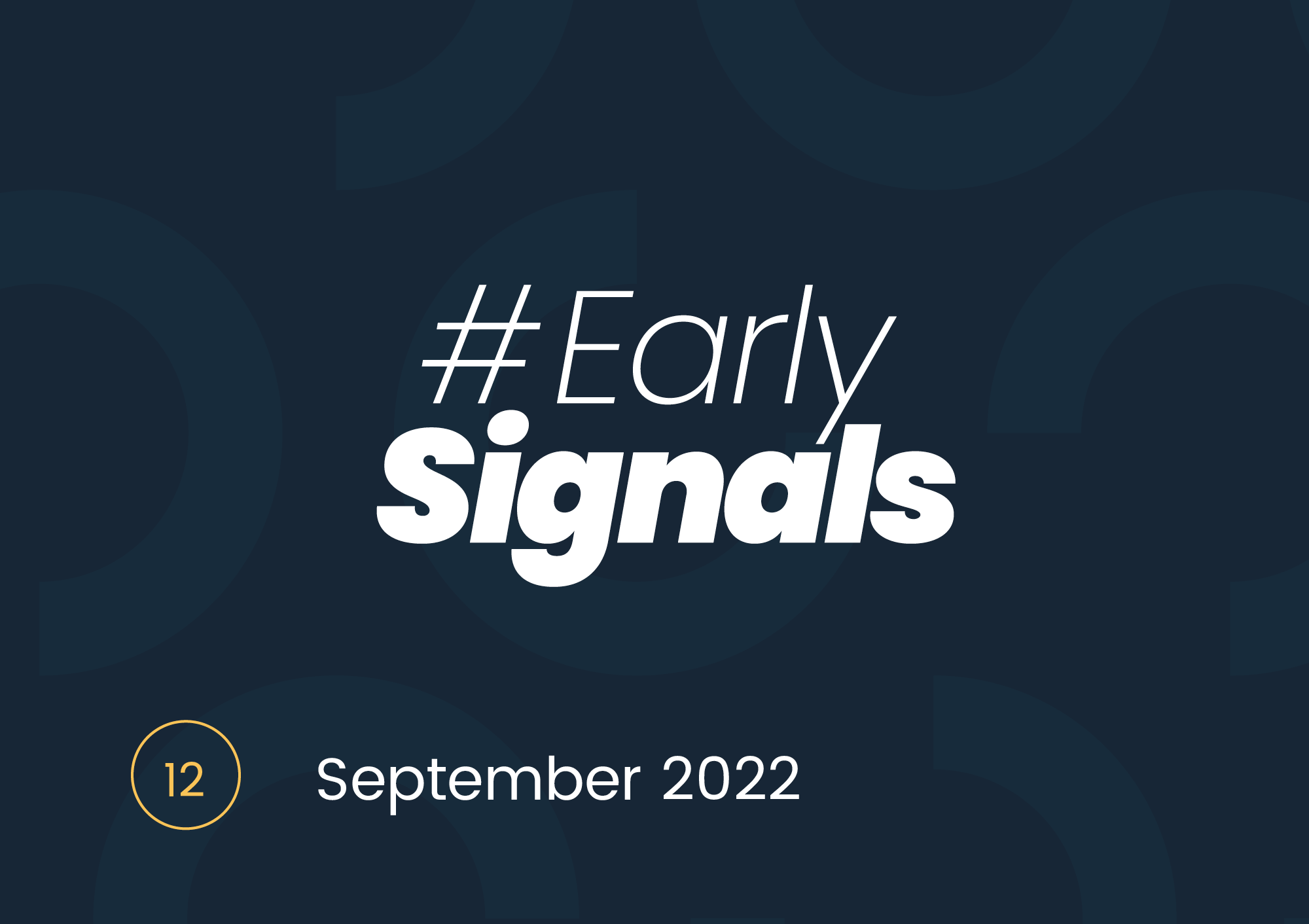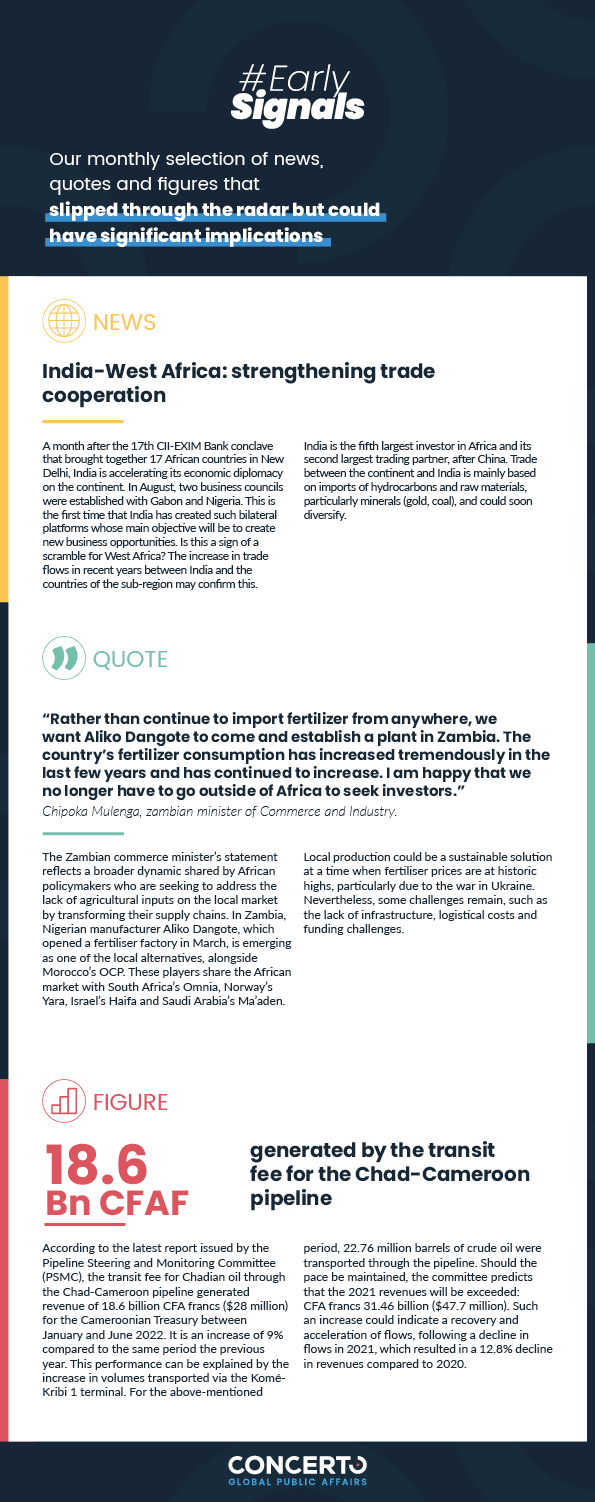Back
#EarlySignals - September 2022
8 September 2022

Analysis
Our monthly selection of news, quotes and figures that slipped through the radar but could have significant implications
NEWS
India-West Africa: strengthening trade cooperation
A month after the 17th CII-EXIM Bank conclave that brought together 17 African countries in New Delhi, India is accelerating its economic diplomacy on the continent. In August, two business councils were established with Gabon and Nigeria. This is the first time that India has created such bilateral platforms whose main objective will be to create new business opportunities. Is this a sign of a scramble for West Africa? The increase in trade flows in recent years between India and the countries of the sub-region may confirm this. India is the fifth largest investor in Africa and its second largest trading partner, after China. Trade between the continent and India is mainly based on imports of hydrocarbons and raw materials, particularly minerals (gold, coal), and could soon diversify.QUOTE
“Rather than continue to import fertilizer from anywhere, we want Aliko Dangote to come and establish a plant in Zambia. The country’s fertilizer consumption has increased tremendously in the last few years and has continued to increase. I am happy that we no longer have to go outside of Africa to seek investors." Chipoka Mulenga, zambian minister of Commerce and Industry.The Zambian commerce minister's statement reflects a broader dynamic shared by African policymakers who are seeking to address the lack of agricultural inputs on the local market by transforming their supply chains. In Zambia, Nigerian manufacturer Aliko Dangote, which opened a fertiliser factory in March, is emerging as one of the local alternatives, alongside Morocco's OCP. These players share the African market with South Africa's Omnia, Norway's Yara, Israel's Haifa and Saudi Arabia's Ma'aden. Local production could be a sustainable solution at a time when fertiliser prices are at historic highs, particularly due to the war in Ukraine. Nevertheless, some challenges remain, such as the lack of infrastructure, logistical costs and funding challenges.
FIGURE
18.6 billion CFA francs generated by the transit fee for the Chad-Cameroon pipeline
According to the latest report issued by the Pipeline Steering and Monitoring Committee (PSMC), the transit fee for Chadian oil through the Chad-Cameroon pipeline generated revenue of 18.6 billion CFA francs ($28 million) for the Cameroonian Treasury between January and June 2022. It is an increase of 9% compared to the same period the previous year. This performance can be explained by the increase in volumes transported via the Komé-Kribi 1 terminal. For the above-mentioned period, 22.76 million barrels of crude oil were transported through the pipeline. Should the pace be maintained, the committee predicts that the 2021 revenues will be exceeded: CFA francs 31.46 billion ($47.7 million). Such an increase could indicate a recovery and acceleration of flows, following a decline in flows in 2021, which resulted in a 12.8% decline in revenues compared to 2020.